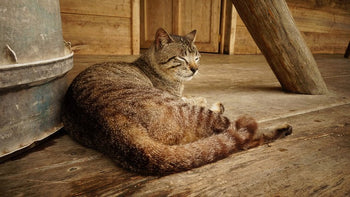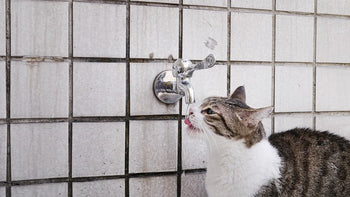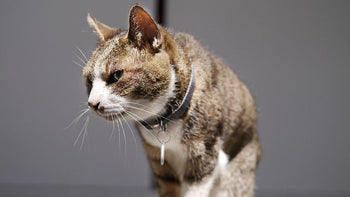When thinking of cats, many people picture the classic image of a cat happily drinking milk. While this image is iconic, in reality, milk and cats don’t always go hand in hand. In fact, giving cats milk can lead to several health problems.

Common Myth: Cats and Milk
Many people believe that cats love milk, but this is actually a common misconception. This idea likely stems from old movies and stories that portray cats lapping up bowls of milk. However, just because a cat may enjoy the taste of milk doesn’t mean it’s good for them. What does milk do to cats? The truth is, that most adult cats can’t digest milk properly.
Should Cats Have Milk?
Should cats have milk? The short answer is no, most cats shouldn’t have milk. Cats are lactose intolerant, meaning they cannot properly digest the lactose found in cow’s milk. While kittens and drinking milk from their mothers during the first weeks of life are normal, adult cats lose the enzymes needed to break down lactose. This can lead to digestive problems like diarrhea, gas, and stomach discomfort.
Signs of Lactose Intolerance
Diarrhea: This is the most common symptom, where the cat experiences loose stools after consuming milk.
Vomiting: Some cats may vomit due to an inability to digest lactose.
Bloating and stomach discomfort: The cat may show signs of bloating, pain, or general discomfort.
Gas: Lactose fermentation in the intestines can cause flatulence.
These symptoms usually appear within a few hours after drinking milk.
Is Milk Bad for Cats?
While kittens can digest their mother’s milk, adult cats and milk are not a good combination. Adult cats’ nutritional needs differ significantly from kittens. While milk might seem like a tasty treat, it doesn’t provide the protein and water they need to stay healthy. In fact, giving cats milk can lead to dehydration from diarrhea or weight gain, which can cause long-term health issues.
The Nutritional Needs of Cats
A cat's nutritional needs primarily depend on high levels of protein and fat, which come from animal sources and are essential for their muscles, energy, and overall health. Essential amino acids like taurine, as well as vitamins A and D, must be obtained through their diet since cats cannot synthesize these on their own. Additionally, minerals like calcium and phosphorus are vital for healthy bones and teeth. While cats require minimal carbohydrates, a small amount of fiber supports digestion. Adequate hydration is crucial for maintaining their health and preventing urinary issues.Therefore, the focus should be on providing your cat with a balanced diet that suits their specific needs, rather than milk.
What About Lactose-Free Milk?
For those who still want to give their cats a treat, lactose-free milk can be a safer option. Products like cat milk for adult cats are available in pet stores and are specifically designed to be lactose-free. Specifically, you should not give an adult cat more than 1-2 tablespoons (approximately 15-30 milliliters) of lactose-free milk at a time. It is recommended that it is offered no more than once or twice a week to avoid potential digestive issues or excessive calorie intake.
Even though lactose-free milk is safer for cats, it’s important to remember that it should only be given as a treat. Water should always be the primary source of hydration for cats, and lactose-free milk should never replace it.

When Can Cats Safely Have Milk?
Kittens can drink milk, but only their mother’s milk or specially formulated kitten milk. Can kitties drink milk from the store? No, they should not. Kittens require nutrients specific to their growth, and cow’s milk doesn’t meet those needs. For orphaned kittens, it’s important to use kitten formula instead of regular milk.
In some cases, a small amount of lactose-free milk may be acceptable for adult cats as a rare treat. But again, moderation is key, and the focus should be on providing plenty of fresh water.
If you're looking to buy a safe and reliable water fountain and feeding bowl for your cat, consider the Uahpet Cat Water Fountains and Feeding series. All Uahpet products are carefully designed and rigorously tested, meeting the OIE international standards set by the World Organisation for Animal Health.
Conclusion
While the image of a cat drinking milk is charming, it’s not a healthy reality. Can cats have milk? The answer is no for most adult cats. Instead, focus on keeping your cat hydrated with fresh water and providing a diet rich in protein. If you do want to give your cat milk, opt for a lactose-free version and limit it to an occasional treat. By doing so, you’ll ensure your cat stays healthy and avoids the digestive problems that regular milk can cause.
In short, when it comes to cats and milk, it’s best to avoid it. Keep your feline friend healthy and hydrated with the right diet and plenty of water!
















